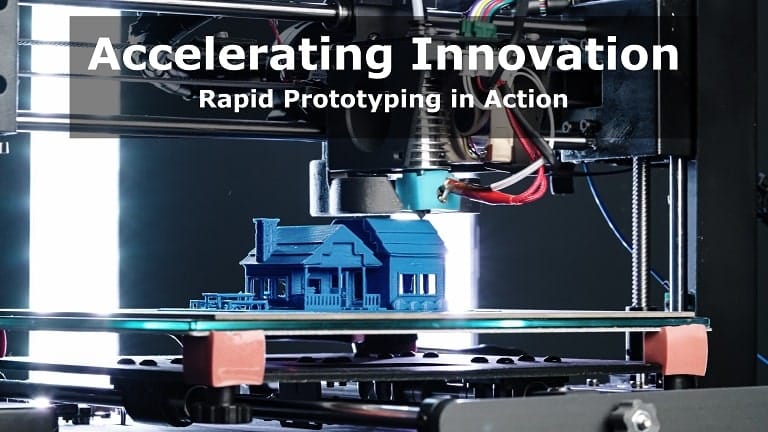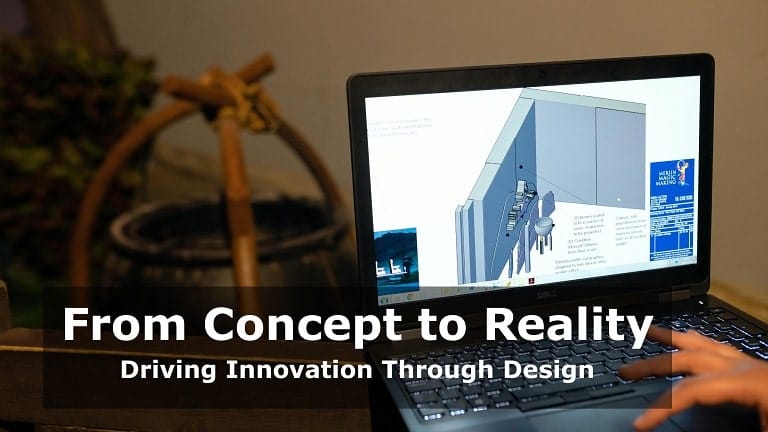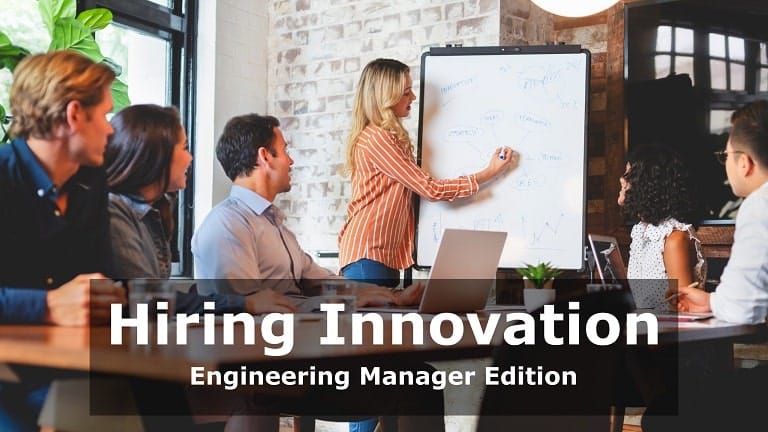- The Evolving Role of the Manufacturing Engineering Manager
- Key Traits to Look for in Engineering Manager Candidates
- Assessing Leadership and Innovation During Recruitment
- Evaluating Budgeting and Resource Management Skills
- Ensuring Business-Technical Alignment
- Role of Manufacturing Engineering Manager Recruiters in the Hiring Process
- Final Thoughts: Hiring for Long-Term Innovation
In the ever-evolving world of manufacturing, innovation is no longer optional—it’s essential. Behind every breakthrough in efficiency, product design, or automation stands a leader who can bridge the gap between technical precision and strategic vision: the engineering manager. But finding the right individual for this role is a challenge that many companies face. The ideal candidate is not only a skilled engineer but also a visionary leader capable of managing teams, driving innovation, and aligning engineering goals with business outcomes. That’s why manufacturing engineering manager recruiters play a crucial role in identifying and attracting talent who can truly make an impact. This guide explores how to recruit engineering managers who lead with purpose and deliver lasting value.
The Evolving Role of the Manufacturing Engineering Manager
The role of a manufacturing engineering manager has undergone a major transformation in recent years. What was once focused largely on maintaining equipment, improving workflows, and overseeing production lines has now expanded into a position of strategic importance—one that directly influences innovation, competitiveness, and business growth.
From Operational Oversight to Innovation Leadership

Today’s engineering managers are expected to go beyond traditional oversight. They play a key role in identifying and implementing new technologies, such as automation, robotics, and data analytics, to drive operational efficiency and product innovation. They’re no longer just executors. Instead, they are forward-thinking innovators who lead change within the organization.
Driving Product Design and Production Efficiency

Engineering managers work closely with R&D, design, and production teams to ensure that new products are not only innovative but also manufacturable, scalable, and cost-effective. Their insights during the early design phase help avoid production delays and improve product quality and delivery timelines.
Cross-Functional Leadership and Business Fluency
In modern manufacturing environments, these managers must collaborate across departments—from procurement and operations to marketing and finance. They’re expected to manage budgets, justify engineering investments, and communicate technical strategies in business terms. This requires not only technical depth but also strong leadership, project management, and financial acumen.
Ultimately, the manufacturing engineering manager is no longer a behind-the-scenes operator—they are a strategic leader who drives innovation, aligns engineering with business goals, and delivers measurable value across the organization.
Key Traits to Look for in Engineering Manager Candidates
Recruiting the right engineering manager goes far beyond assessing technical credentials. While a solid engineering background is important, the role today demands a powerful blend of leadership, vision, and emotional intelligence. Manufacturing engineering manager recruiters should look for well-rounded individuals who can manage people, projects, and innovation simultaneously.
1. Strategic Thinking and an Innovation Mindset
Great engineering managers see the bigger picture. They align engineering goals with business outcomes, anticipate industry trends, and position their teams to drive competitive advantage. Candidates should show a history of initiating or contributing to innovation—whether through new product development, process optimization, or integrating emerging technologies.
2. Emotional Intelligence and Team Mentorship

Soft skills are often overlooked, but they’re critical in leadership roles. Look for candidates who can inspire and lead teams through change, manage conflict effectively, and foster psychological safety. Their ability to coach and mentor junior engineers reflects not just people skills, but also a commitment to long-term team development.
3. Experience Managing R&D or Cross-Functional Teams
Ideal candidates have hands-on experience leading multidisciplinary teams—often involving product design, R&D, operations, and even marketing. This shows they can collaborate across departments, balance multiple priorities, and translate complex technical ideas into actionable business strategies.
Bonus Trait: Adaptability
With manufacturing constantly evolving, a great manager is agile, open to learning, and resilient under pressure.
By focusing on these core traits, recruiters can identify engineering leaders who do more than maintain—they innovate, inspire, and drive progress.
Assessing Leadership and Innovation During Recruitment
Recruiting an engineering manager who can spearhead innovation requires more than scanning resumes—it demands a strategic evaluation of both leadership style and innovation capability. Manufacturing engineering manager recruiters must dig deeper to uncover how candidates think, lead, and translate vision into impact.
Key methods include:
Behavioral Interview Questions: Ask about past experiences where the candidate led an innovation initiative. For example:
“Tell me about a time you had to lead a team through a technical challenge with an uncertain outcome.”
“How have you handled resistance to change when introducing a new idea or technology?”
These questions help gauge adaptability, emotional intelligence, and influence.Case Study or Project-Based Tasks: Give candidates a real-world scenario involving innovation bottlenecks, budget limits, or cross-functional alignment. Assess how they think strategically and solve problems creatively under constraints.
Vision-Business Alignment: Probe how they ensure engineering outcomes support business goals. Do they measure success through ROI, customer impact, or time-to-market? Candidates who can clearly link technical execution with commercial value are far more likely to thrive.
By using these methods, recruiters can identify leaders who not only manage—but inspire and innovate.
Evaluating Budgeting and Resource Management Skills
A standout engineering manager isn’t just an innovator—they’re also a disciplined steward of resources. Manufacturing engineering manager recruiters must evaluate a candidate’s ability to manage R&D budgets, allocate resources efficiently, and prioritize innovation without overspending.
Here’s how to assess budgeting and resource management skills effectively:
Past Budget Ownership: Ask candidates about specific budgets they’ve managed—how large were they, and what percentage was allocated toward innovation? Strong candidates can articulate how they balanced cost, quality, and innovation outcomes.
Evidence of ROI-Driven Decisions: Look for indicators that the candidate made fiscally responsible choices, such as reducing waste, optimizing supply chain efficiency, or increasing throughput without inflating costs.
Prioritization Techniques: Evaluate how the candidate determines which projects to fund under limited resources. Do they use frameworks like cost-benefit analysis, risk assessment, or value stream mapping? Their ability to say “no” to non-essential ideas is just as critical as driving bold initiatives.
Tool Proficiency: Strong managers often use ERP systems (e.g., SAP, Oracle), project management software (e.g., Jira, MS Project), or resource planning tools to monitor costs, schedules, and capacity. For a deeper understanding, you can refer to Gartner’s guide to ERP systems which offers insights into how ERP software supports manufacturing efficiency.
Scenario-Based Questions: Present a situation with limited budget and high stakeholder expectations. How they respond reveals their fiscal strategy, innovation mindset, and leadership under pressure.
Ensuring Business-Technical Alignment
An exceptional engineering manager must be a translator—bridging the gap between technical complexity and business strategy. For manufacturing engineering manager recruiters, it’s crucial to assess how well a candidate can align engineering initiatives with overall organizational goals.
Here’s what to look for:
Translating Technical Work into ROI: Candidates should be able to explain how their engineering decisions have impacted profitability, market share, or operational efficiency. Ask how they measure success beyond technical KPIs—do they track metrics like cost savings, production lead times, or revenue growth resulting from process improvements?
Effective Cross-Functional Communication: Look for candidates who can communicate complex ideas clearly to non-technical stakeholders. Whether they’re presenting to the C-suite, collaborating with marketing, or working with finance, the ability to tailor their message to the audience is vital.
Track Record of Business Impact: Seek out real examples where their leadership contributed to product success or strategic outcomes. This could include launching a new product line faster than competitors, streamlining manufacturing processes that improved customer satisfaction, or implementing technologies that opened new market opportunities.
By identifying engineering managers who think beyond the machine shop floor and speak the language of business, companies can ensure their innovation efforts align with strategic priorities—and ultimately, drive meaningful growth.
Role of Manufacturing Engineering Manager Recruiters in the Hiring Process
Recruiting for a role as specialized as a manufacturing engineering manager demands more than traditional hiring methods—it requires deep industry insight. This is where manufacturing engineering manager recruiters play a pivotal role in finding the right talent who can drive innovation and manage technical teams effectively.
Why domain expertise matters:
These recruiters understand the nuanced requirements of the role: the intersection of engineering expertise, leadership capability, and business acumen. They can decipher whether a candidate’s experience aligns with modern manufacturing demands, including R&D oversight, lean principles, and advanced automation technologies.
Tools and assessment techniques:
Top recruiters use a combination of technical screening tools, behavioral assessments, and structured interviews tailored to engineering leadership. Many leverage AI-driven talent platforms, project-based testing, and performance simulations to evaluate innovation aptitude, decision-making, and budget management.
Bridging HR and technical leadership:
Manufacturing engineering manager recruiters act as a critical link between HR professionals and engineering stakeholders. They help translate business goals into technical hiring criteria and ensure both sides are aligned on candidate expectations.
By combining industry knowledge, data-driven assessment methods, and close collaboration with internal teams, these specialized recruiters streamline the hiring process—ensuring companies secure leaders who not only understand the factory floor but also lead it into the future.
Final Thoughts: Hiring for Long-Term Innovation
In today’s manufacturing landscape, hiring an engineering manager is more than just filling a leadership vacancy—it’s about shaping the future of your organization. The right candidate doesn’t simply oversee production; they foster innovation, align technical strategy with business goals, and lead teams toward sustainable growth.
When you prioritize leadership traits like strategic thinking, innovation mindset, and strong communication, you’re investing in long-term value. These engineering managers create cultures of accountability, reduce time-to-market, and help your organization remain competitive in a rapidly changing industry.
Given the critical nature of this role, working with specialized manufacturing engineering manager recruiters can greatly improve your chances of finding the perfect fit. These recruiters understand the unique balance of technical skill and executive leadership required for success.
If you’re ready to find high-impact engineering leaders who can transform your manufacturing operations, explore our Manufacturing Executive Recruiters services at JRG Partners. With deep industry expertise and a results-driven approach, we help companies secure the talent that drives innovation and delivers measurable outcomes.


